Matt Rosica, IT manager
Years with Organization: 19. Starting with the parts department in 1997 handling freight deliveries at the Bakersfield store, Rosica was promoted to purchasing agent before transitioning into the IT department full-time in 2001. He is currently the IT manager for Kern Machinery’s four stores in California, along with the recently acquired Camp Equipment dealerships in Idaho and Oregon. Rosica also manages IT needs for Western Power Products and DM Camp & Sons.
Role: “I am responsible for the company’s information technology infrastructure, from rebooting a computer to long-term projects. Our customer is the employee, so is the employee satisfied with the result? Did we leave the machine in a better condition, or did we not get the job done and have a machine down all day? Those are the metrics I use to hold myself and my department accountable.”
Exclusive videos with Matt Rosica
Customer chatter on the showroom floor or a wrench wrapping around a bolt in the service bay are often sounds that help define the success of a dealership. Less audible, but just as critical is the soft and constant purr of a company’s central computer servers, from which flow nearly every business operation.
On a daily basis, Matt Rosica, IT manager with Kern Machinery, listens for this familiar sound at the dealership’s administrative headquarters in Bakersfield, Calif. For the last 15 years, he’s been the primary problem-solver for information technology — from printer malfunctions to implementing a progressive business management software platform.
It’s easy to take the conveniences that today’s technology provides for granted, but Rosica’s passion for his job is obvious and enduring, regardless of how many times he’s had to help reboot the same employee’s computer. He relishes the relatively low profile of his position, likening it to that of an umpire in baseball — if nobody notices him or is complaining — he’s doing his job well.
“Every day presents different challenges and I’m involved in the highest and lowest level situations, which keeps things interesting,” he says. “I can go into a job thinking it’s going to be an easy fix, but come to find out it’s a more complex issue. I still like to be surprised like that every once in awhile.”
Managing and evolving the internal technology infrastructure for a growing dealership and its affiliated companies is anything but easy, even if Rosica does his best to make it appear so.
Building Infrastructure
Rosica started his career with Kern in 1997, working in the parts department handling morning freight deliveries at the Bakersfield store. At the time, he admits that he “didn’t know what John Deere green was,” but Rosica worked his way to the front parts counter as a purchasing agent, which is where he found his computer calling.
“There were some issues with our ability to search parts online and the parts manager at the time was very frustrated as to why we couldn’t look up certain items on all the machines,” Rosica says. “I told him I’d look into it and found a solution via the network. That was my ‘a-ha’ moment that I really enjoyed working with computers and from then on, I was a go-to guy for solutions.”
Embracing his computer savvy, Rosica went to night school for formal IT training and his efforts didn’t go unnoticed by Kern management. In 2001, Rosica transitioned full-time into the dealership’s IT department.
“There was one other individual doing IT at the time and he definitely needed help because we were growing and expanding,” he says. “PC technology was still evolving and I had a skillset that fit well with where the dealership wanted to go.”
Today, Rosica supervises one IT assistant and reports directly to Kern’s CFO Marty Buck. While he doesn’t have the direct customer contact he once did as a purchasing agent, Rosica is responsible for keeping the technology infrastructure connected and running at each of the dealership’s four California stores, and three recent Camp Equipment acquisitions in Idaho and Oregon.
He also handles IT for the Camp brothers’ other businesses, Western Power, an engine and drivetrain manufacturer headquartered next to Kern’s Machinery’s Bakersfield store, and D.M. Camp & Sons ranch. If there aren’t any major projects going on, he’s distributed evenly among the three companies, run by brothers Clayton (Kern Machinery), Don (Western Power Products) and Edwin (D.M. Camp) Camp.
Measuring the overall productivity of the IT department isn’t done through unit sales or service hours billed, but Rosica does have benchmarks and goals.
“Our customer is the employee, so is the employee satisfied with the result?” he says. “Did we leave the machine in a better condition, or did we not get the job done and have a machine down all day? Was it a one-time problem or is this continuing to happen over and over again?
“That’s kind of the metrics I use. Did it get fixed and was it in a timely manner? That’s really what I’m looking at. I hold myself accountable to the same standards. Did I leave our employees in better shape than when I came in? For the most part, I’m going to say, ‘yes.’ I’m still here.”
Practical Evaluation
The advent of more mobile technology has allowed Rosica to be increasingly efficient with his time, not having to physically be in front of every computer screen or software program. He can check in from the road and solve a simple problem in 15 minutes, rather than force an employee to wait and potentially cause a domino effect of inefficiency at a store.
“It’s cliché, but time is money,” Rosica says. “Mobility is everything today. If I don’t have to drive out, find the employee and stand over their shoulder, that’s a huge benefit. It keeps everyone more productive.”
Operator error accounts for a portion of IT problems, but Rosica tries to be proactive with informing employees about software updates or new programs with emails or reminders. He also admits that patience is a necessary virtue.
“There are those people who will call everyday at 4:59 p.m., but it’s like a family member because I know them,” he says. “It’s part of the job and I don’t get irate and it doesn’t frustrate me. It’s probably why I’m doing alright in this field because there’s some really upset administrators out there who just can’t take the user interaction like that.”
Matt Rosica, IT manager at Kern Machinery in Bakersfield, Calif., talks about the changes the IT industry has seen over the last several decades and how those changes have impacted farm equipment dealers. This video is part of the Dealership Minds Video Series, brought to you by Charter Software.
Rosica rolls with the mundane technology tasks, but he relishes the opportunity to screen and evaluate new technology to determine whether it could be a business asset for the dealership or frivolous fad.
For example, while many employees were still accustomed to desktop computers at the turn of the century, Rosica wanted to make sure that the company kept pace with technology that would increase efficiency and productivity. Salespeople and management transitioned into laptops and from there, added tablets and smartphones.
Having handheld devices has allowed salespeople to do more presentations in the field with the customers using video and to quote equipment on the spot, which is often more convenient than using a laptop, Rosica says. But he thoroughly researches and crunches the numbers on any investments, prior to recommending a company-wide purchase.
“I know I need to get the ownership’s blessing so what I do is get these tools into their hands and they can see how much easier their job is with a smartphone and realizing they don’t need a flip phone anymore,” he says. “Once they have the tools, I can get the green light to get other employees connected.
“Then it comes down to cost. It’s not the upfront cost that is going to be a problem, which is nice with ownership. They’re looking long term.”
Rosica says there are two questions he’ll ask himself when looking at new technology — can employees use it and is it worth the investment? If the answer is ‘no’ to either question, it’s probably not a product worth pursuing.
“There’s a ton of technology we’ll never touch, because it doesn’t make sense,” he says. “It could be a fun gimmick or gadget, but if it doesn’t have a practical application, we won’t pursue it. It’s a challenge to know the difference sometimes. I could implement new technology all day, but if we don’t have those internal drivers supporting adoption, it’s not going to be worthwhile.”
Planning Ahead
One of the most ambitious projects Rosica worked on was upgrading the dealership’s business management system 2 years ago. Realizing the limitations of their existing system, Clayton Camp, Don Camp, Buck and Rosica assembled a team consisting of departmental managers and some of the company’s best power users to research and price out a platform that could provide versatility and room to grow.
Kern Machinery has completed the implementation of their new ASPEN dealer business management system from Charter Software. Rosica explains why the move was made and how things are going so far. This video is part of the Dealership Minds Video Series, brought to you by Charter Software.
They chose Charter Software’s Aspen system, which integrated parts, service, sales, reporting and accounting through a mobile platform — capabilities that their prior system didn’t provide.
“With our old system, we were very much locked into what the software did and that was it,” Rosica says. “Now we have an open architecture where we own the data and we have the keys to the car. One thing we wanted to make sure we had was access to a database we were paying a good amount of money to maintain.”
But picking the system was only the first step. Rosica was the lead on implementing the new platform and getting employees up to speed on its features and user expectations.
He admits that getting employees out of their comfort zone and abandoning a system they’d known for years was a challenge. Rosica attended regular meetings with employees in each segment of the business to ensure a smooth transition, work out any bugs and also solicit feedback to pass along to Charter.
One of the biggest assets Rosica says he had during the transition was full support from management to make sure everyone, from the top down, understood the new system.
“Clayton will train and train and train and then spend extra money on training, because he doesn’t want technology to pass anyone up,” Rosica says. “He doesn’t want to lose anybody, which is awesome. I know we have some veteran employees who need extra support and I’ll do what it takes to help them and ensure that they are still working with the company today. We didn’t want software to push anybody out and that mindset helped make the transition easier.”
Rosica credits Camp and the dealership’s management team with having the foresight to choose a new business management system when they did, rather than being forced into one. The benefits have been tangible, with the dealership’s accounting department better able to track profit and loss and areas that need attention. Now the parts department is able to easily check and share inventory among the different locations.
“We have to be fully integrated with as much speed and efficiency as we can get, and I’m the guy who makes sure that happens,” Rosica says. “I was able to scale our system, so we chose to go in-house and bought big servers and lots of hard drives to accommodate growth. We over-speced what we were told to get and it’s really paid off so far.”
Rosica’s job is to ensure those IT investments continue to pay off, which is why he often starts his days at his office in Bakersfield, to hear the reassuring hum of those company servers. While there are back-up generators in case of a power failure, Rosica admits that walking into a dark, quiet server room some morning is his greatest fear.
“That would mean not only did I lose one company, but all companies are down and they’re doing nothing, absolutely nothing,” he says. “I feel a lot more confident having the back-up generators, because the last thing I want is to hear is nothing.”

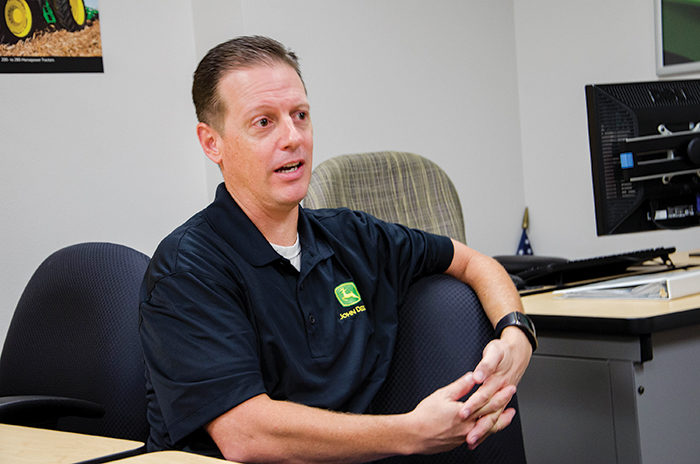
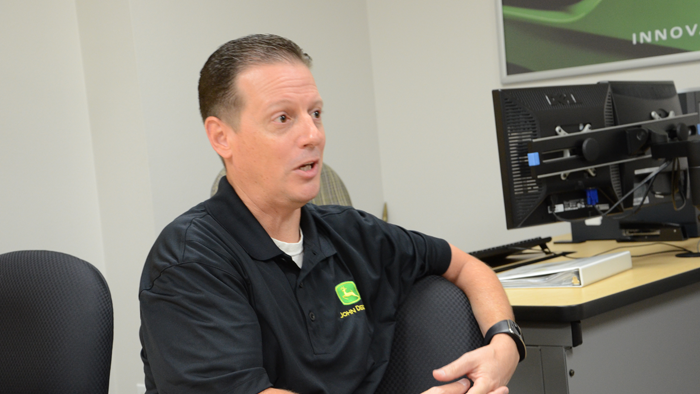
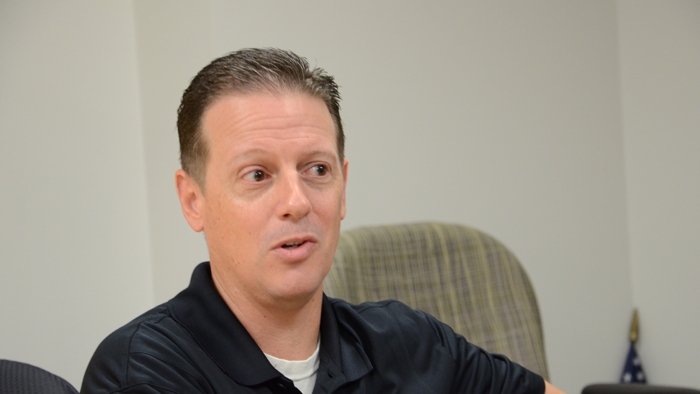
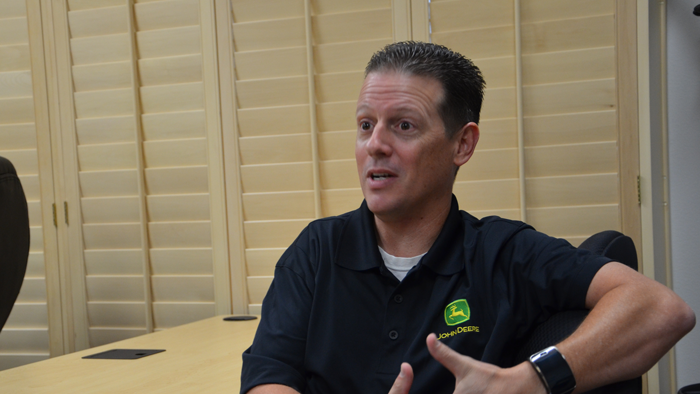
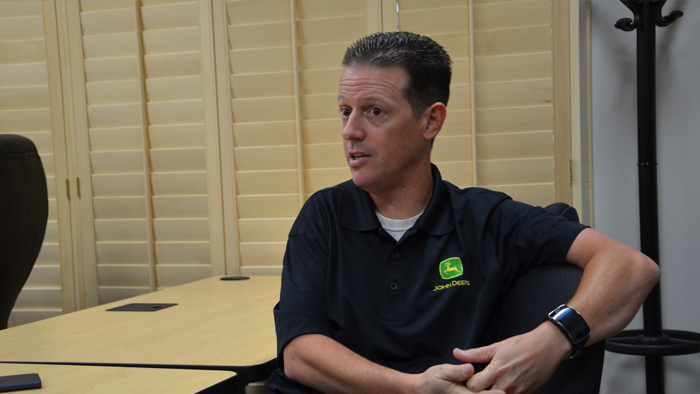






Post a comment
Report Abusive Comment